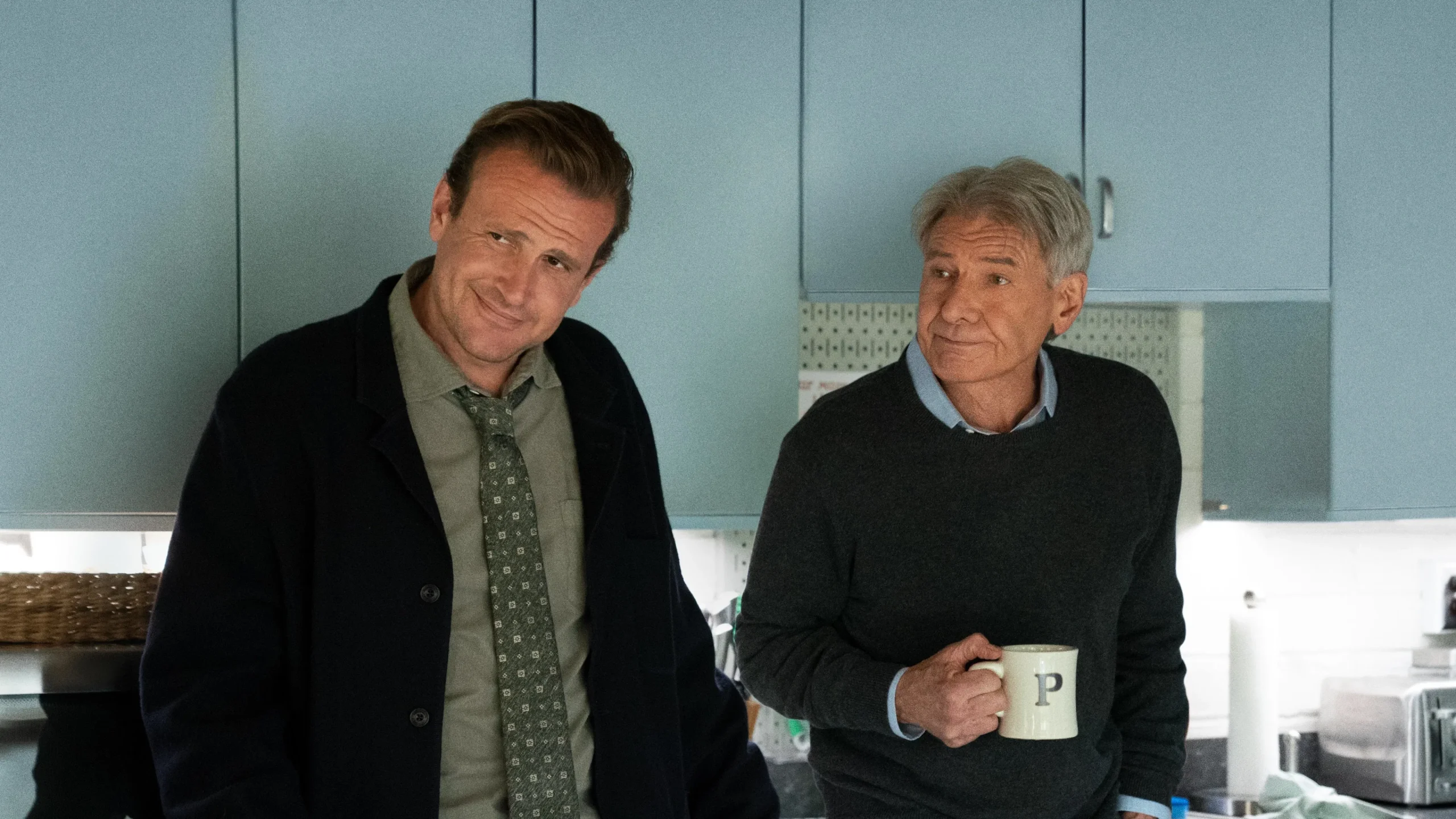“Shrinking,” an Apple TV+ series created by Jason Segel, Bill Lawrence, and Brett Goldstein (also known for Ted Lasso and Scrubs), is a dramedy that blends sharp humor and raw emotion—all through the lens of grief, vulnerability, and personal chaos.
A Chaotic Protagonist: Jimmy Laird and His Unfiltered Grief
Jason Segel plays Jimmy, a therapist devastated by the loss of his wife. He throws himself into work as a coping mechanism and begins breaking every rule: he tells his patients exactly what he thinks, crosses ethical boundaries, and spirals emotionally.
From the very first episode, it’s clear we’re dealing with someone who means well but is far from stable—and that’s exactly what makes the show so relatable. Segel’s balance of comedy and melancholy is compelling, and his emotional journey is the beating heart of Shrinking.
Paul (Harrison Ford): The Flawed Mentor Who Moves Us Through Vulnerability
Harrison Ford delivers one of his most grounded performances as Paul Rhodes, a seasoned therapist recently diagnosed with Parkinson’s. At first, he’s the stereotypical grumpy old man, but over time he reveals layers of tenderness, dry wit, and genuine emotional connection with Jimmy and Jimmy’s teenage daughter.
His performance is surprisingly touching. Ford proves that subtle vulnerability can speak louder than drama. It’s the cracks in his tough exterior that hit the hardest.
Complex and Authentic Supporting Characters

One of Shrinking’s strongest assets is its supporting cast. Gaby (Jessica Williams) is a colleague grappling with a collapsing marriage. Alice (Lukita Maxwell), Jimmy’s daughter, is navigating teenage grief. Liz (Christa Miller), the overbearing neighbor, turns out to have a big heart. And Brian (Michael Urie), the eccentric best friend, brings comic relief and loyalty in equal parts.
Each character has flaws, personal stories, and emotional contradictions that create both humor and resonance. The dialogue feels authentic and never forced.
Comedy with Heart: The Perfect Balance of Drama and Lightness
Despite touching on deep issues like trauma and loss, the series maintains a light and witty tone. The awkward therapy sessions, social mishaps, and Jimmy’s blunt honesty create laugh-out-loud moments—often just seconds before a heartfelt scene sneaks up on you.
It’s that kind of emotional duality that makes Shrinking special. The show achieves the rare feat of making you laugh, reflect, and cry—all within the same episode.
A Second Season That Deepens the Story
While the first season does a great job setting up the show’s universe, it’s in the second season that Shrinking really hits its stride. Supporting storylines are given more room, character arcs deepen, and emotional stakes rise.
The writing remains sharp, and the emotional payoff grows richer. The series matures alongside its characters, all while maintaining its unique brand of humor.
The Flaws: Therapeutic Tropes and Inconsistent Pacing
Not everything hits the mark. Some emotional developments feel rushed—romantic connections form too quickly, and certain conflicts resolve with a neatness that doesn’t always feel realistic.
For mental health professionals, Jimmy’s unconventional approach to therapy may raise eyebrows. His decision to step deeply into his clients’ personal lives is a storytelling device that might not sit well with everyone.
A Devoted Fanbase That Wants More
The audience response has been overwhelmingly positive. On social media, fans frequently share sentiments like, “This show made me laugh and cry in the same episode,” or “It’s better than most award-winning comedies.”
The love for characters like Paul and Gaby transcends borders. Viewers from various countries relate to the grief, awkwardness, and slow healing that Shrinking portrays so well.
Modern Context: Therapy as a Narrative Lens
The popularity of mental health-themed shows is no accident. In today’s world, therapy has gone from taboo to central topic—and Shrinking capitalizes on that without becoming preachy.
Rather than teaching therapy techniques, the show presents grief and emotional recovery in raw, relatable ways. Even therapists, it reminds us, are human. And that honesty builds genuine empathy.
Why Shrinking Deserves Global Recognition
Though it’s an American production, the themes in Shrinking are universal: loss, emotional growth, family dynamics, guilt, love, and personal rebirth. These experiences resonate no matter where you live.
The show acts like an emotional mirror. It doesn’t provide neat answers—but it comforts by showing that no one is alone in their silent battles.
Conclusion: Is Shrinking a Drama Disguised as Comedy—Or Comedy with a Soul?
Shrinking stands out as a dramedy that treats heavy topics with sensitivity and humor. Its characters are messy but deeply human. It brings genuine laughs while prompting powerful reflections.
If you’re looking for a series that makes you feel something real, that connects without lecturing, and that finds hope in emotional chaos—Shrinking might just be your next favorite watch.
